

|
 |
Klown: The Movie AKA Klovn: The Movie (Blu-ray)
[Blu-ray]
Blu-ray B - United Kingdom - Arrow Films Review written by and copyright: Paul Lewis (10th June 2017). |
|
The Film
 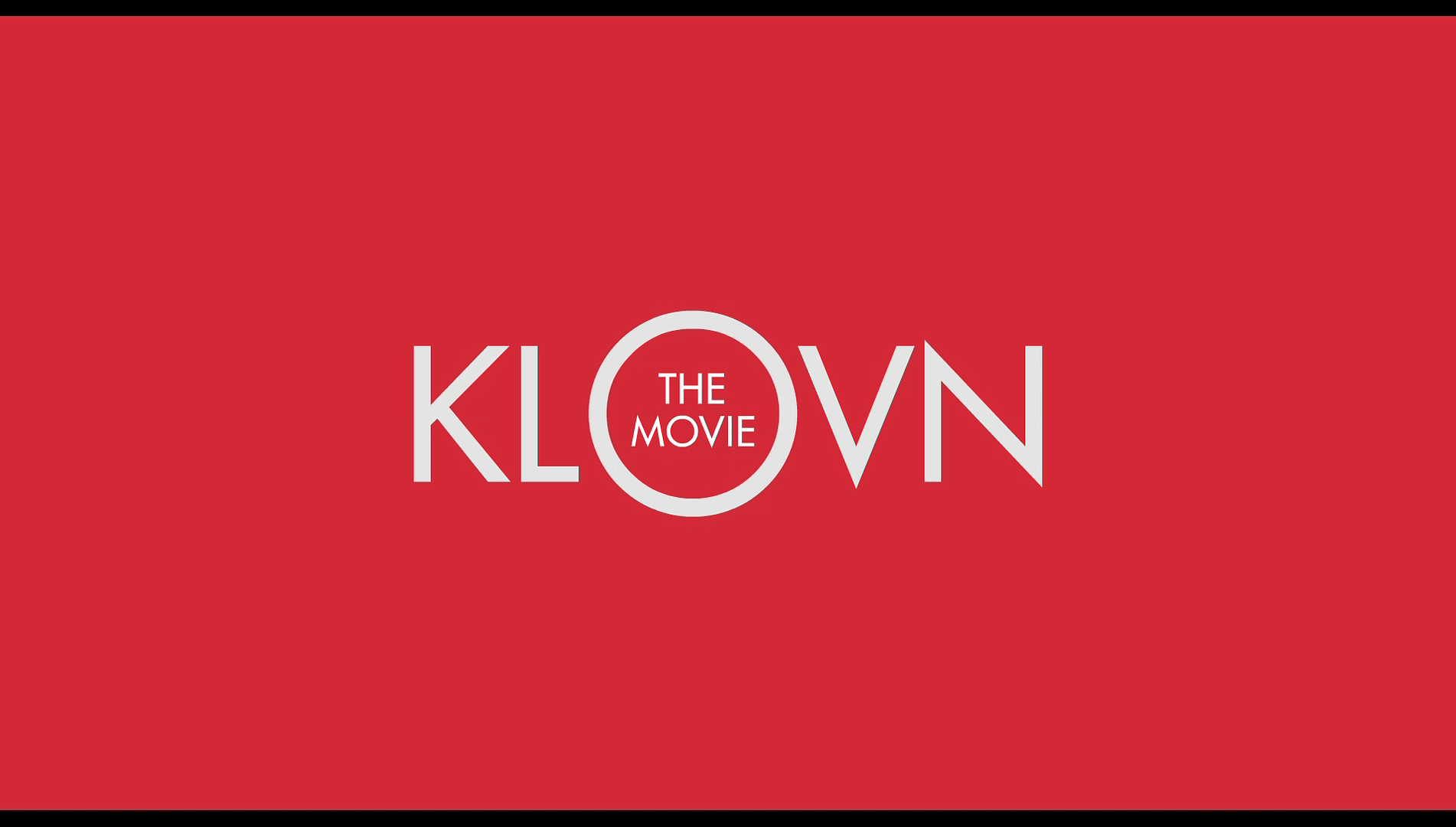 Klown AKA Klovn: The Movie (Mikkel Nørgaard, 2010) Klown AKA Klovn: The Movie (Mikkel Nørgaard, 2010)
The big screen version of Danish television comedy Klovn (Klown; Nutmeg Movies/Zentropa Episode, 2005-9), this film follows the further adventures of socially awkward Frank (Frank Hvam), his friend Casper (Casper Christensen), Frank’s girlfriend Mia (Mia Lyhne) and Casper’s wife Iben (Iben Hjejle). Like the series on which it is based, Klovn: The Movie demonstrates a heavy debt to Larry David’s US comedy-of-manners sitcom Curb Your Enthusiasm (HBO, 1999- ). The dynamics within both series are very similar: mirroring the relationship between Larry (Larry David) and his wife Cheryl (Cheryl Hines) in Curb…, in Klovn Frank, whose social ineptitude lands him in a seemingly infinite number of awkward situations, enjoys a tense relationship with his girlfriend Mia, who barely tolerates Frank’s bizarre social behaviour; meanwhile, like Larry’s friend Jeff (Jeff Garlin) and his wife Susie (Susie Essman), Frank’s friend Casper is brash and extrovert but held in check by his domineering wife Iben. The similarities between Klovn and Curb… exist in the character’s behaviour and relationships, the confusion of fact and fiction (in terms of the actors playing characters who share their names), the use of circus music, the semi-improvised nature of much of the material, the verite-style camerawork, and the plotting – which follows the formula established in Seinfeld (Castle Rock/West-Shapiro, 1989-98), where the complex comic narratives usually revolved around ‘unlikely coincidence, parodic media references, and circular structures’, featuring several narratives that ‘collide with unlikely repercussions throughout the diegesis’ (Jason Mittel, quoted in Folis, 2014: 158). However, Klovn features a heavier focus on sexual content than Curb…, which can also be seen in this film adaptation. It’s hard to imagine Curb… featuring a subplot in which Larry, as with Frank in Klovn: The Movie, is convinced by his equally middle-aged and middle-class friends that he should demonstrate his love for his partner by giving her a ‘pearl necklace’ (not the kind you buy from Tiffany’s) first thing in the morning, only to discover that the sleeping woman over whom he has been masturbating is not Mia but is instead her mother Pykker (Elsebeth Steentoft) – and the ensuing discharge causes damage to her eye which requires her to visit the A&E department of the local hospital and wear a distinctive eyepatch throughout the rest of the film. 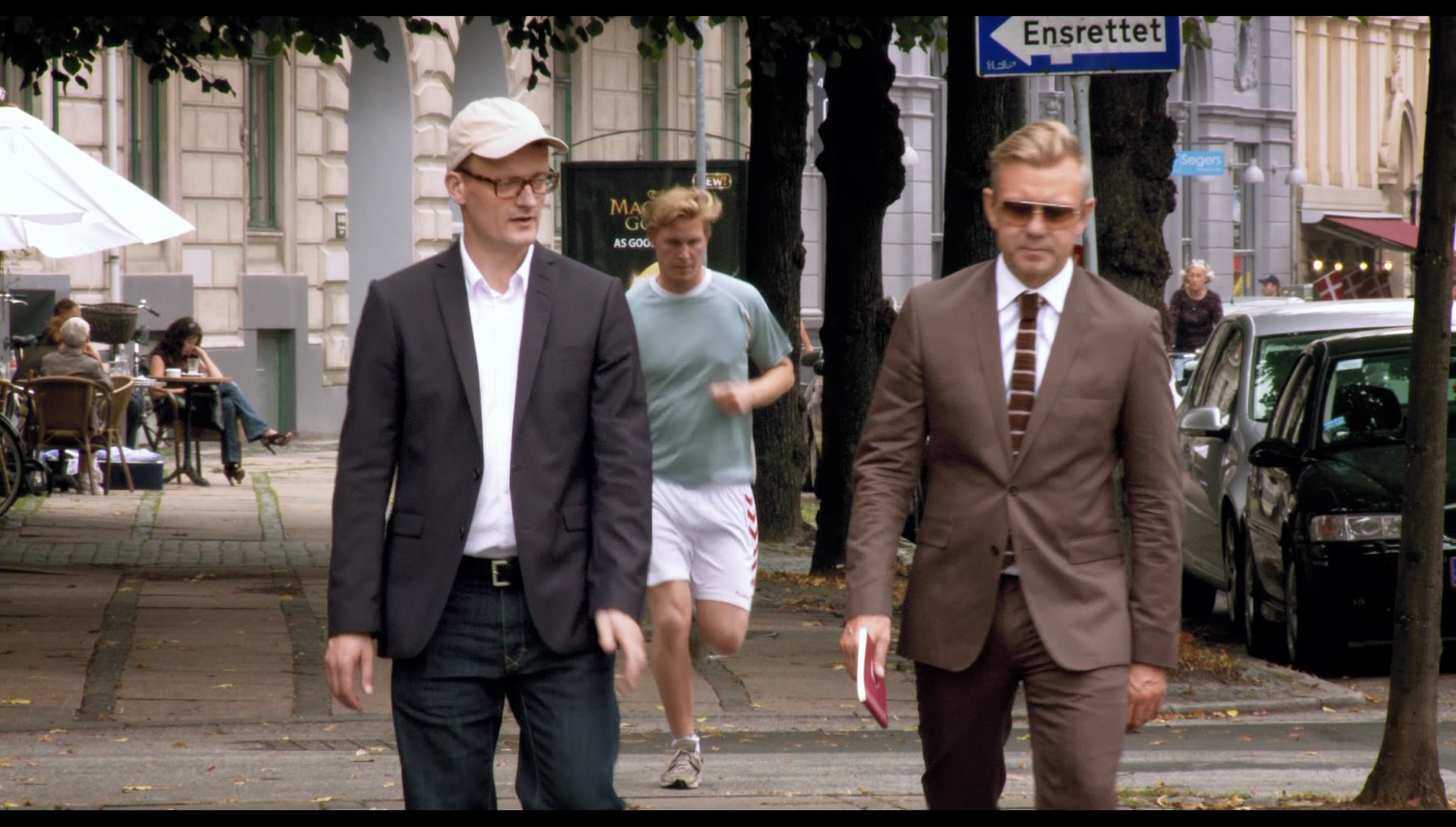 Klovn: The Movie’s narrative revolves around Frank and Casper’s annual canoeing trip, which Casper dubs the ‘Tour de Pussy’: away from the eyes of his wife Iben, Casper plans on seducing as many women as possible, with a stop off at the ‘best brothel in Europe’, the Castello Alley Cat – a one-night-of-the-year-only club which is run by Bent Fabric (Bent Fabricius-Bjerre, playing himself), who also co-ordinates the book club to which Frank and Casper belong. At the wedding of Mia’s sister, Frank discovers from another guest that Mia is pregnant – but she has not told Frank yet, as she believes him not to possess ‘fatherhood potential’ and is considering an abortion. Frank freely admits that he does not like children, but he is nevertheless displeased at this, and desperate to prove his ability to function as a father, he abducts Mia’s 12 year old nephew Bo (Marcuz Jess Petersen), with the intention of taking him on the canoeing trip in order. Casper reacts angrily to this intrusion on his ‘Tour de Pussy’, however, telling Frank that ‘pussy beats fatherhood’. Klovn: The Movie’s narrative revolves around Frank and Casper’s annual canoeing trip, which Casper dubs the ‘Tour de Pussy’: away from the eyes of his wife Iben, Casper plans on seducing as many women as possible, with a stop off at the ‘best brothel in Europe’, the Castello Alley Cat – a one-night-of-the-year-only club which is run by Bent Fabric (Bent Fabricius-Bjerre, playing himself), who also co-ordinates the book club to which Frank and Casper belong. At the wedding of Mia’s sister, Frank discovers from another guest that Mia is pregnant – but she has not told Frank yet, as she believes him not to possess ‘fatherhood potential’ and is considering an abortion. Frank freely admits that he does not like children, but he is nevertheless displeased at this, and desperate to prove his ability to function as a father, he abducts Mia’s 12 year old nephew Bo (Marcuz Jess Petersen), with the intention of taking him on the canoeing trip in order. Casper reacts angrily to this intrusion on his ‘Tour de Pussy’, however, telling Frank that ‘pussy beats fatherhood’.
However, as always with Frank and Casper, things don’t go as planned. Prior to embarking on the trip, Frank offends Bent by failing to read Joseph Conrad’s Heart of Darkness before the book club meeting (which, as the viewer might guess, leads to Frank being excluded from the brothel later in the film). Ironically, Frank and Casper’s ‘Tour de Pussy’ comes increasingly to parallel Marlowe’s journey through the Congo in Heart of Darkness, their canoe trip along the river culminating in a series of increasingly bizarre stop-offs on the way to the brothel and the rock festival that Mia and Iben think is the men’s real destination. On the way, the trio camp at Papa Bear’s campsite, where Bo is humiliated by a group of teenaged boys who claim he has a small penis and, after unsuccessfully getting the unrepentant youths to apologise (‘What if you were teased like that?’, Frank asks them; ‘It’d never happen. We don’t have small willies’, one of the boys responds), Frank retaliates by humiliating one of the gang, pulling his trousers down in front of the campsite. Frank is then accused by Papa Bear, the owner of the campsite, of being a paedophile with ‘a willie fixation’. Meanwhile, Casper is accused of rape by one of a group of sixth form students who are on a similar canoeing trip and are staying at the same campsite. 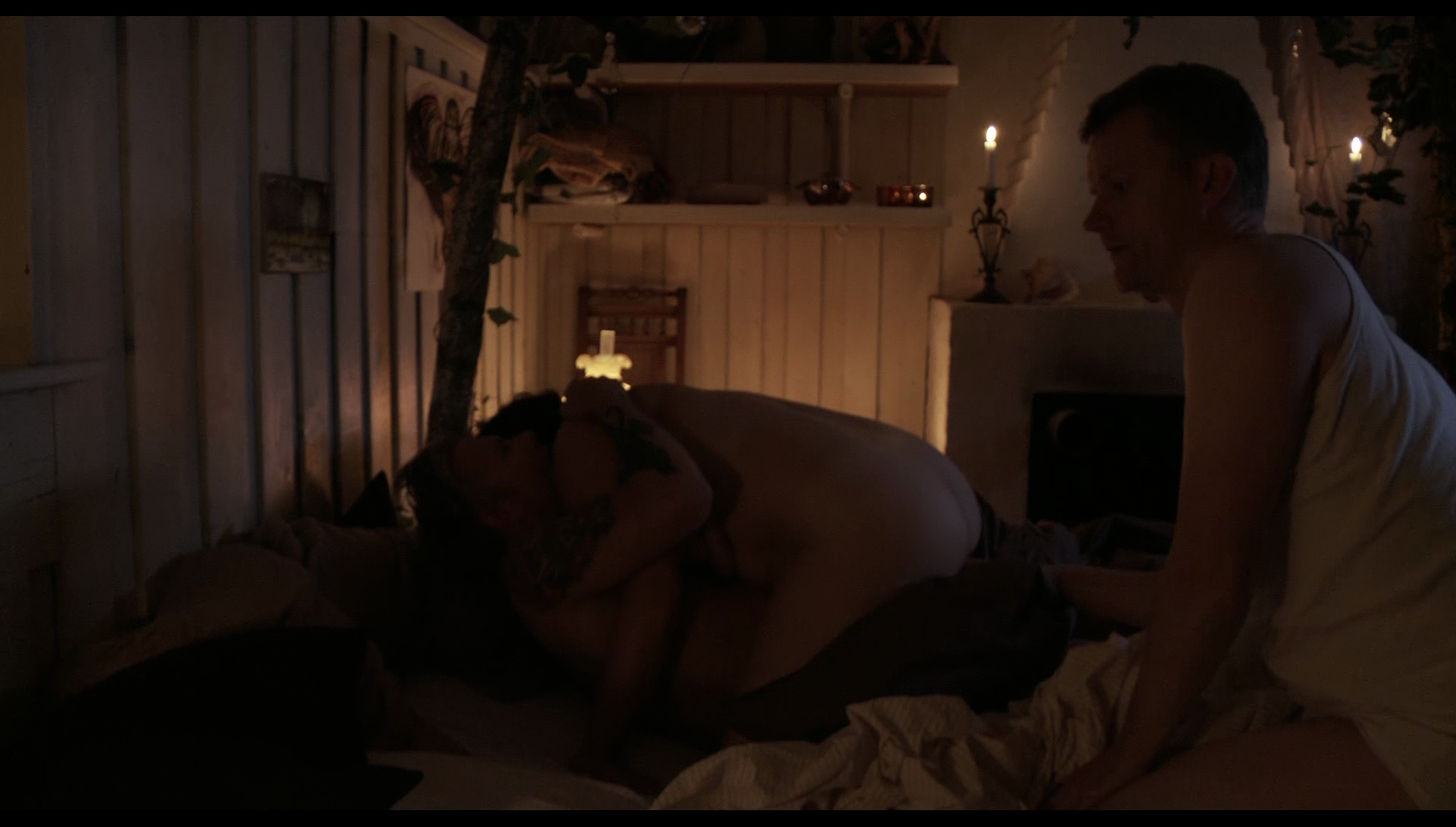 The socially awkward situations escalate as the group head towards the rock festival and exclusive brothel. When their canoe capsizes, Frank, Casper and Bo are taken in for the evening by a woman, Ronja, who lives in an isolated house on the river bank. However, during the night Frank awakens to find Ronja fucking Casper, and Casper demands that Frank ‘join in’ – or, if Frank is unwilling to join in, he must at least ‘finger her arse’. It’s the least Frank can do, Casper reasons, for a woman who was so kind as to cook them pancakes for dinner. Frank does as he is told, awkwardly and with resistance; but in the morning this results in Ronja telling Frank and Casper that she feels violted and demands that they leave. The socially awkward situations escalate as the group head towards the rock festival and exclusive brothel. When their canoe capsizes, Frank, Casper and Bo are taken in for the evening by a woman, Ronja, who lives in an isolated house on the river bank. However, during the night Frank awakens to find Ronja fucking Casper, and Casper demands that Frank ‘join in’ – or, if Frank is unwilling to join in, he must at least ‘finger her arse’. It’s the least Frank can do, Casper reasons, for a woman who was so kind as to cook them pancakes for dinner. Frank does as he is told, awkwardly and with resistance; but in the morning this results in Ronja telling Frank and Casper that she feels violted and demands that they leave.
In essence, the film revolves around Frank’s desperation to prove to Mia that he has ‘fatherhood potential’ – before Mia aborts their baby. Early in the film, Frank admits freely that he doesn’t like children. Prior to his discovery that Mia is pregnant, Frank reacts badly to her suggestion that they look after Bo: ‘If I’d wanted kids around, I would have worked in a nursery’, Frank asserts. When Frank discovers inadvertently that Mia is pregnant (‘Your boys are swimming, Frank’, their mutual friend – a gynaecologist – tells Frank), Mia tells him that ‘I worry you don’t have potential as a father [….] You don’t really like kids, do you’. Frank’s quest to prove that he has the potential it takes to be a father is motivated by a taxi driver who, in what is perhaps the film’s most important line of dialogue, tells Frank ‘Any man has the right to become the father he’s capable of being’. With this, Frank is set on the path which contrasts his immaturity and irresponsibility with the maturity and responsibility that his new role as a father will require; though the actions of his friend Casper continually seek to drag Frank back on to the path of immaturity. (The phrase ‘Pussy beats fatherhood’ becomes Casper’s mantra as the film progresses.) Frank’s quest to prove his ‘fatherhood potential’ seems scuppered when Bo is humiliated by the pair who, whilst high after smoking a giant reefer at the festival, joke about Bo’s small penis with other attendees of the festival. Bo flees and ends up in hospital. Thereafter, a guilt-ridden Frank makes it his mission to help Bo achieve his dream: a scale model of Underberg delivery van that can only be acquired by collecting 288 caps from bottles of Underberg bitter. 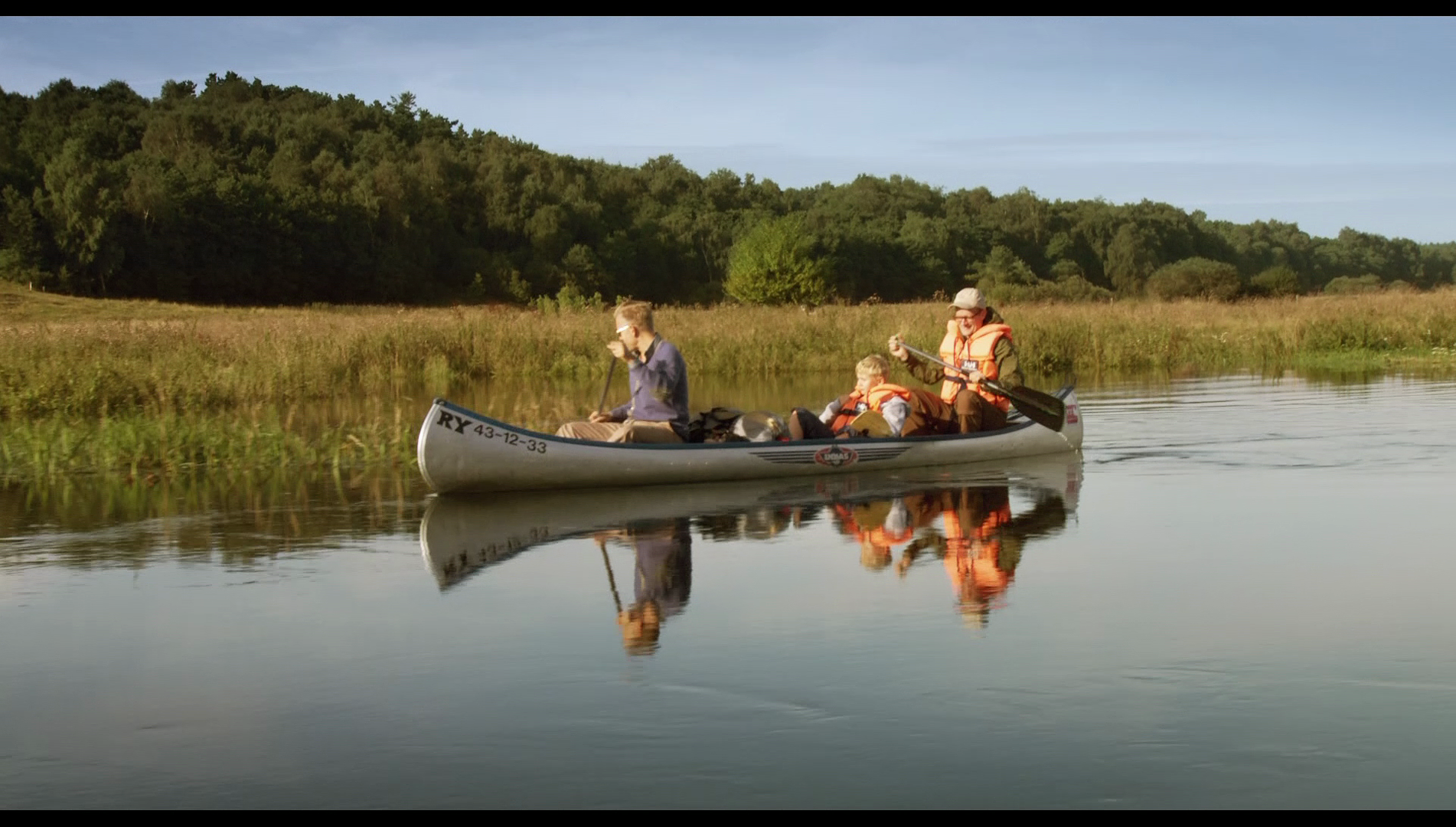 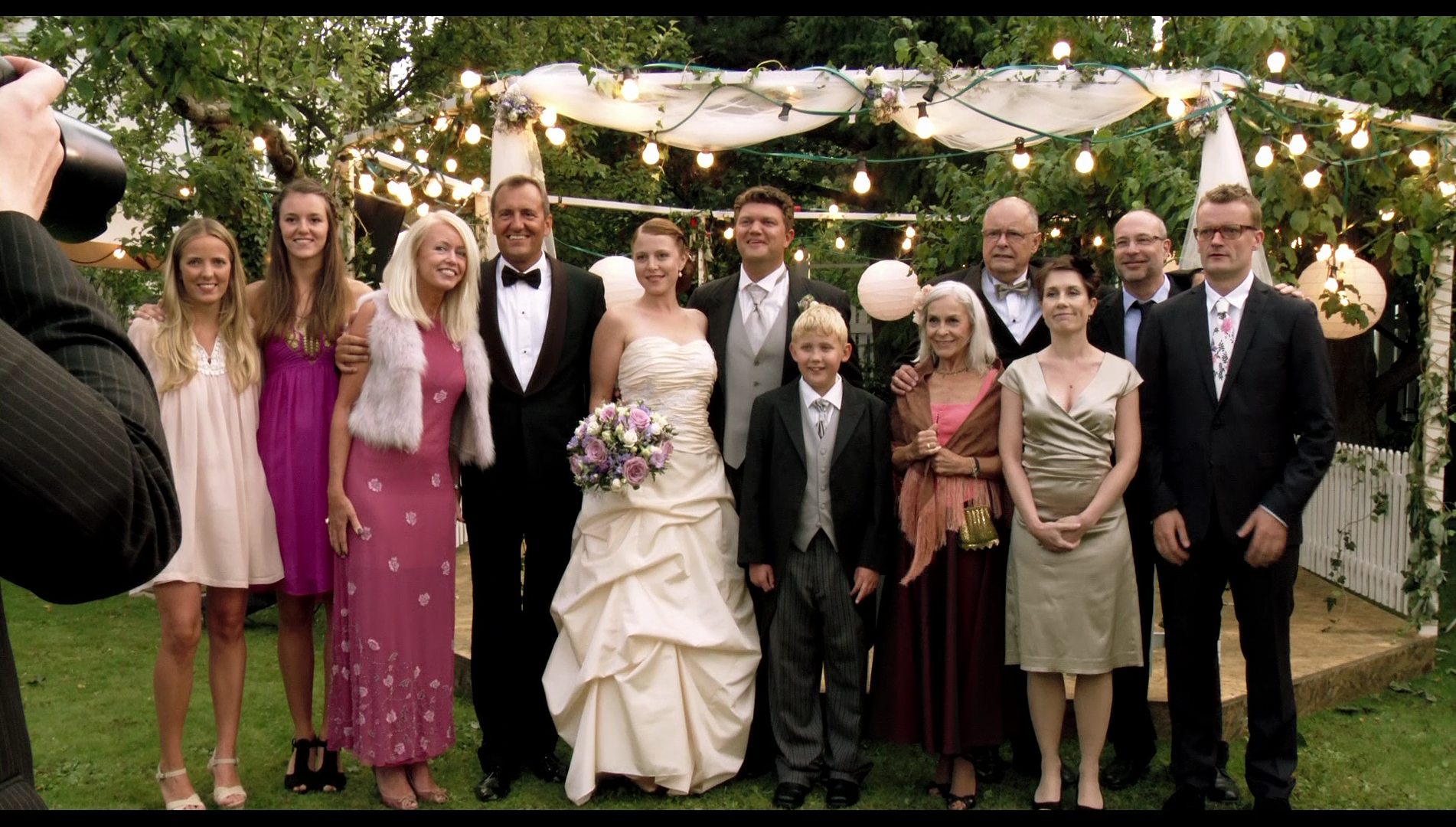 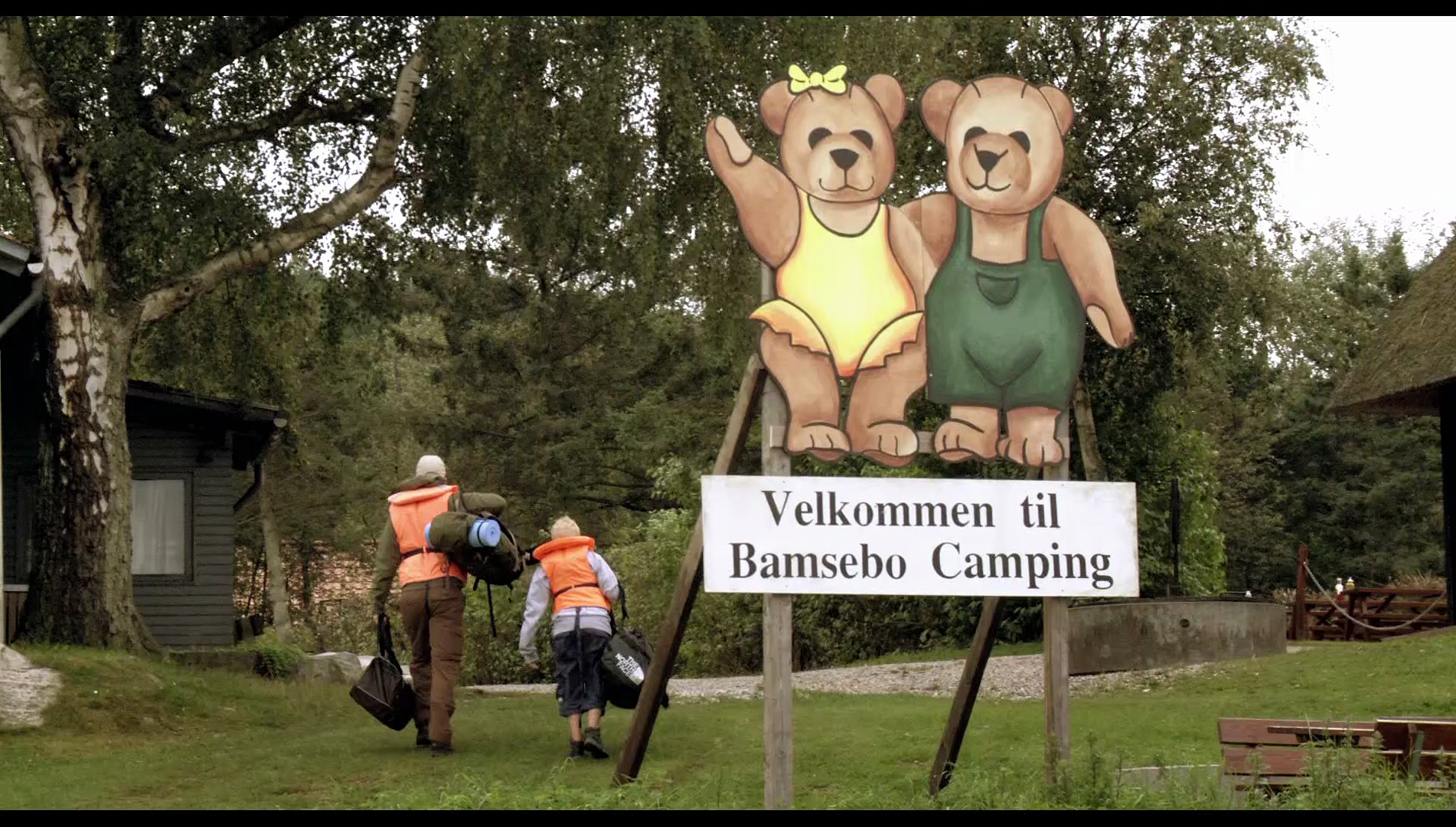
Video
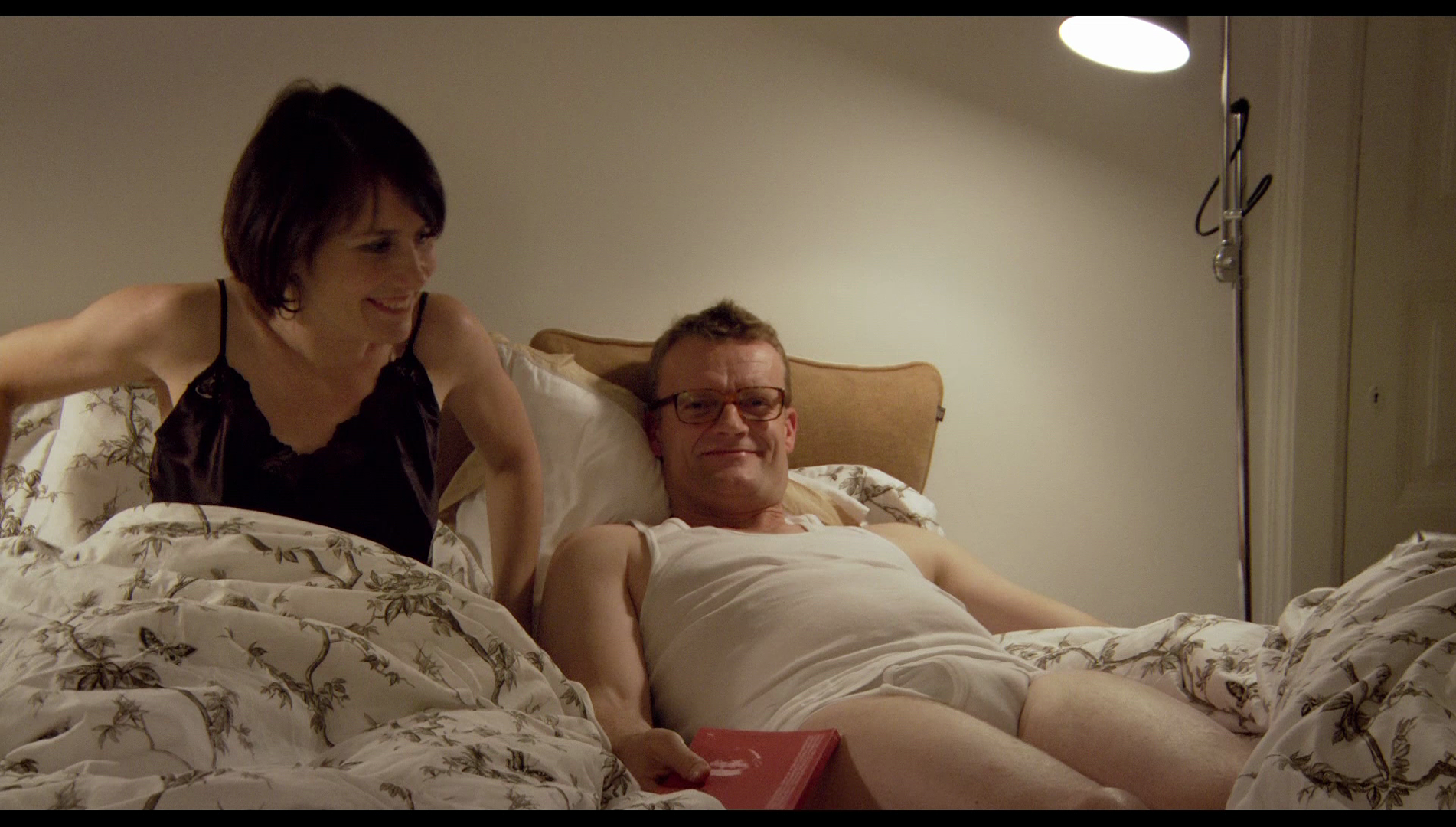 Shot digitally, Klown is presented here uncut, with a running time of 89:32 mins. The presentation is 1080i/25fps, in line with the Finnish Blu-ray. (The US Blu-ray release, meanwhile, seems to be 1080p.) The presentation uses the AVC codec and takes up approximately 25Gb of space on the Blu-ray disc. Shot digitally, Klown is presented here uncut, with a running time of 89:32 mins. The presentation is 1080i/25fps, in line with the Finnish Blu-ray. (The US Blu-ray release, meanwhile, seems to be 1080p.) The presentation uses the AVC codec and takes up approximately 25Gb of space on the Blu-ray disc.
Shot digitally, the film is presented here in an aspect ratio of 1.85:1, which would seem to be its intended aspect ratio. There’s no reason to doubt that this clone of a film captured digitally isn’t true to source. As a big screen version of a European television programme, the film may perhaps have been intended to be presented in 1080i/25fps; though the film has been released theatrically, it’s difficult to say what the filmmakers’ original intentions were – whether they intended for it to be shown in cinemas or whether it was made for television broadcast and then found theatrical distribution later. (In which case, it could very well have been shot at 25fps and the US Blu-ray disc is simply a standards conversion.) Either way, regardless of the interlaced presentation, throughout the film there’s a good level of fine detail present within the image. Contrast is good and true to source – though, as a film shot digitally, Klown lacks the dynamic range of a picture shot on film. Nevertheless, midtones are balanced and shadow detail is present. There are some shots that seem a little overexposed (eg, see the large screen grab below this paragraph), and whites are sometimes blown out in shots in which the exposure has been balanced on the foreground with a strong light source in the background. These ‘gripes’ are all a product of the original photography and use of digital capture, however, and aren’t ‘faults’ of this Blu-ray presentation. Regardless, Klown has an unfussy aesthetic, with much verite-style camerawork. It is presented here in a handsome transfer that shows the characteristics of much shot-on-digital material. It’s a perfectly fine transfer which is free from problems, other than the question over whether or not the film was indeed shot, and intended for broadcast/exhibition, at 25fps. 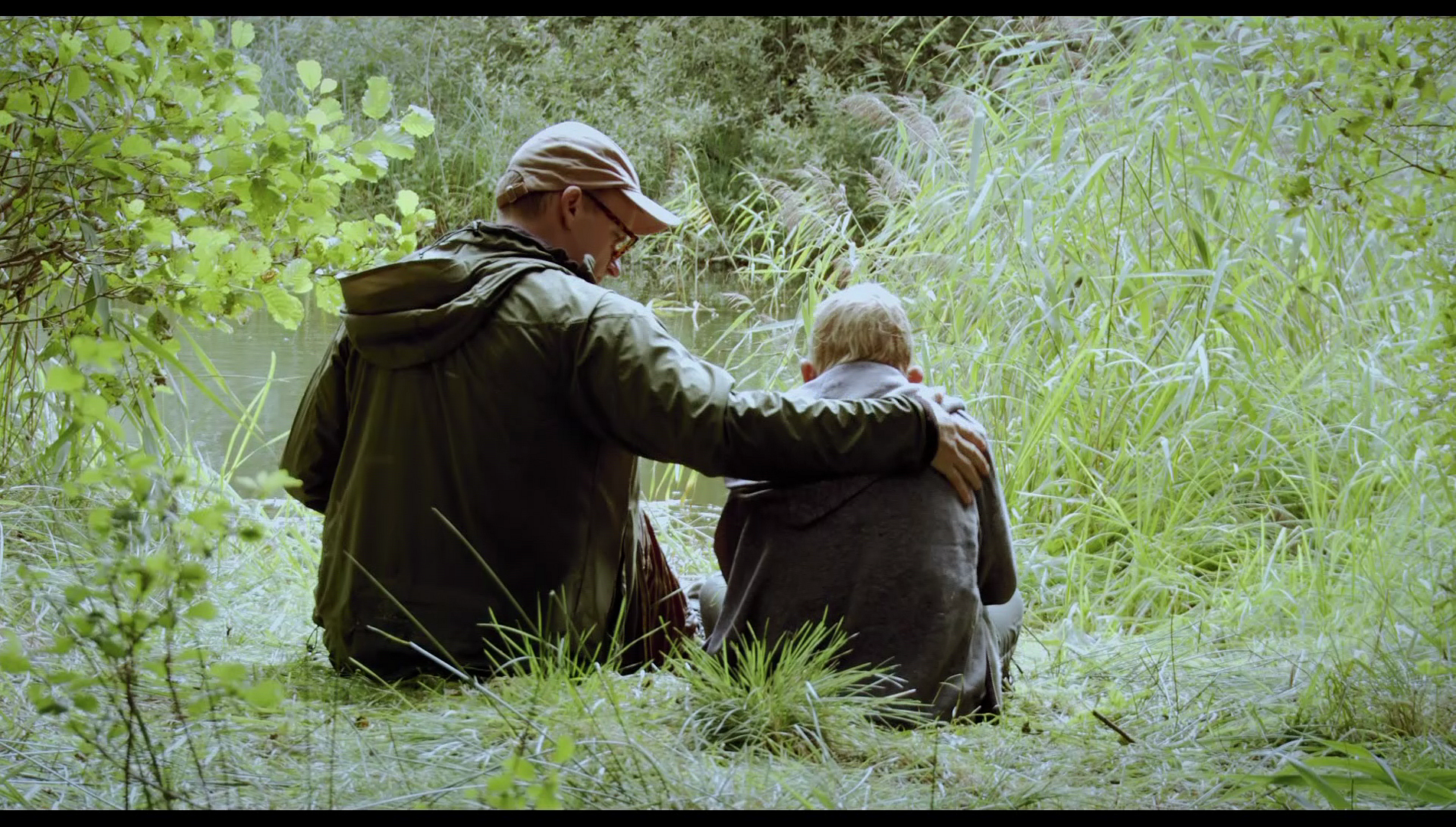
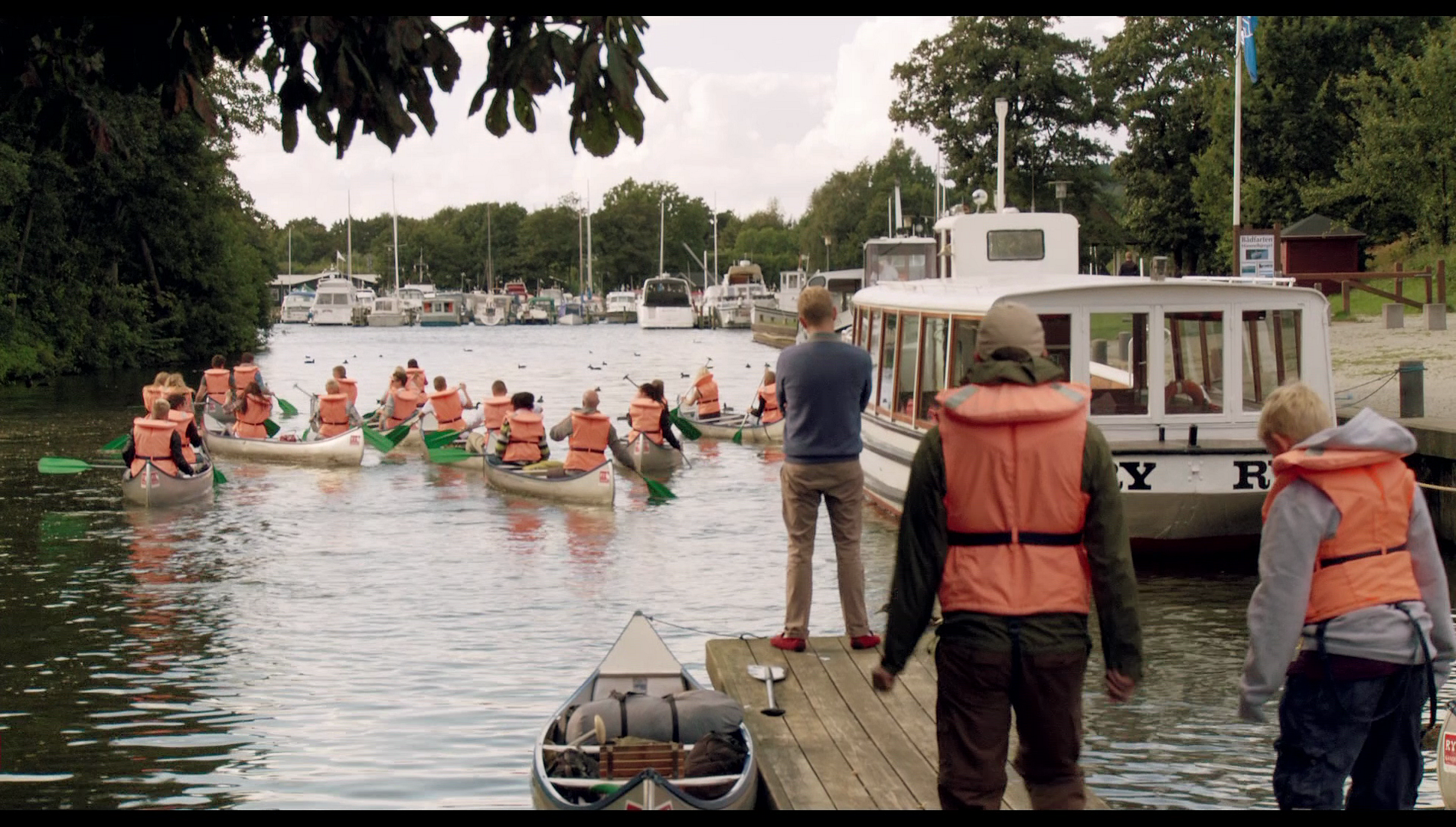 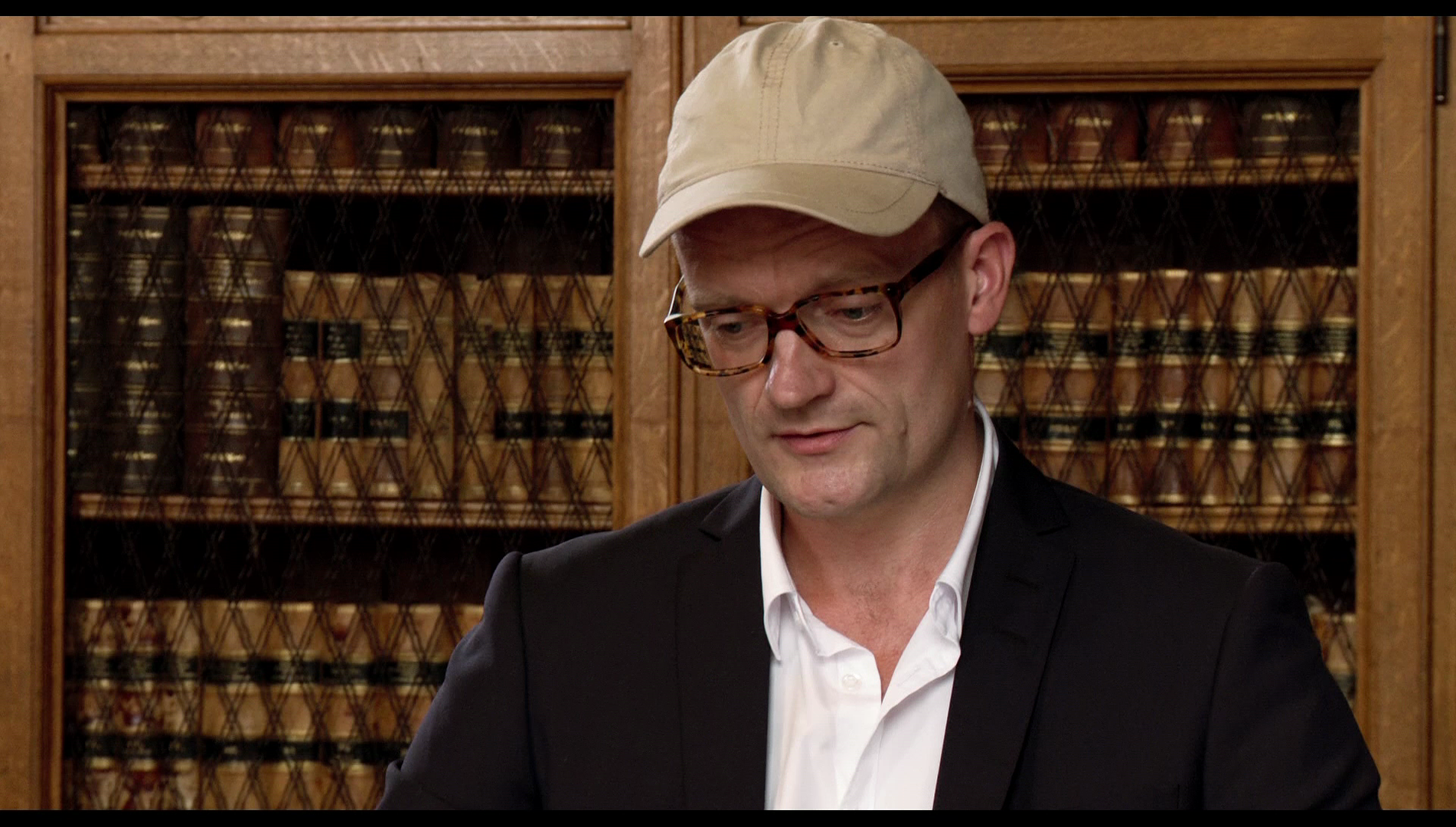 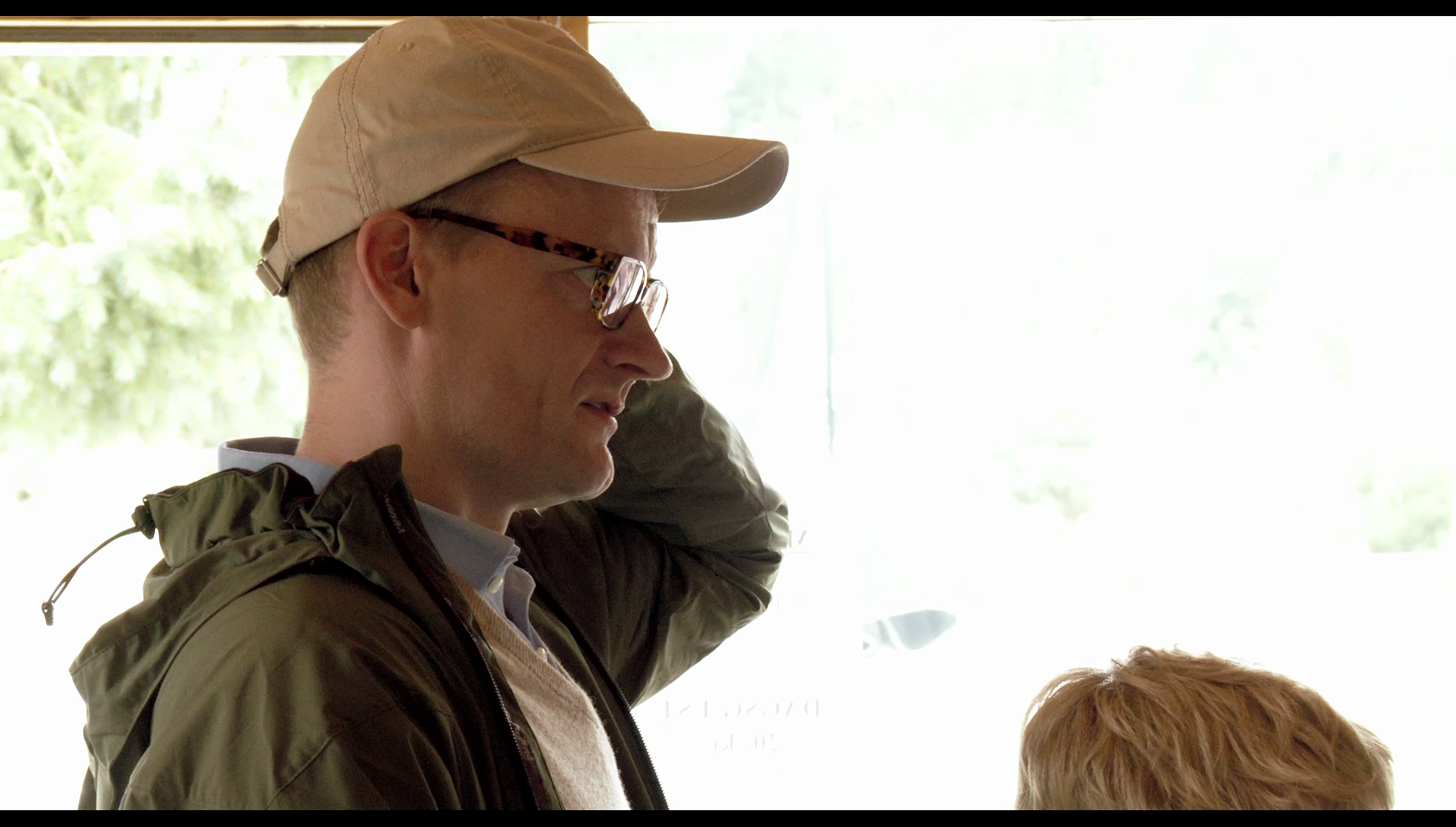
Audio
Audio is presented via a DTS-HD MA 5.1 track (in Danish) with optional English subtitles. For the most part, the audio track doesn’t make much use of the 5.1 soundscape, although the sound mix comes alive when the group arrive at the rock festival. The subtitles are easy to read and free from errors.
Extras
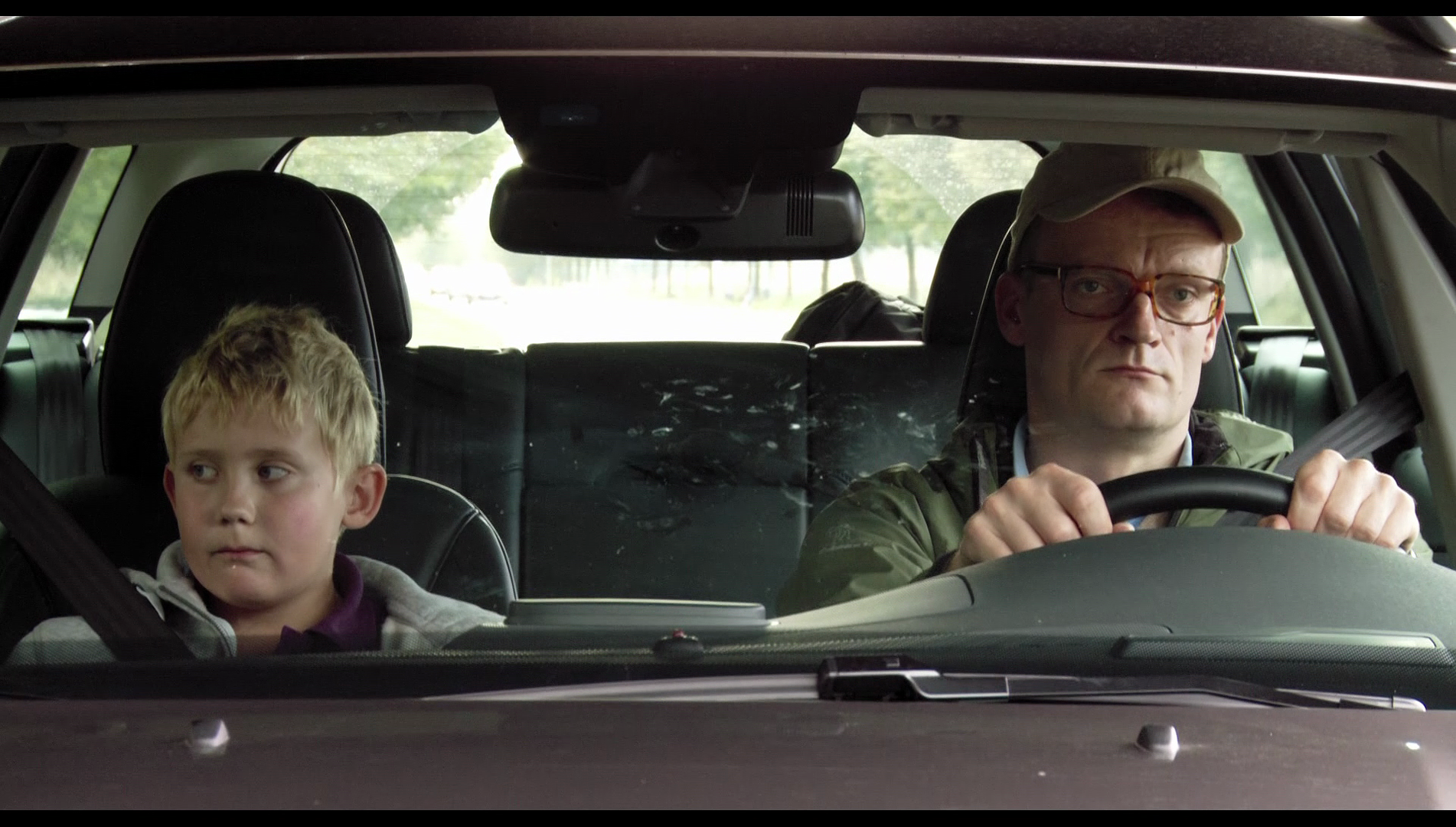 The disc includes: The disc includes:
- An audio commentary with Frank Hvam, Casper Christensen and Mikkel Norgaard. The trio reflect on the production of the film and its relationship with the television series. This is an excellent, warm commentary track that is filled with information about the film and the audience’s responses to it. The commentary track is in English. - ‘Klown: It’s a Jungle Down There’ (25:02). An episode from the second series of Klown, ‘It’s a Jungle Down There’ was written by Lars Von Trier and produced in 2005. - ‘Klown from Behind’ (40:06). This documentary mixes behind the scenes footage with interviews. The cast and director are shown preparing for the film’s premiere and talking with the press on the ‘red carpet’. There’s much discussion of the size of Casper Christensen’s penis(!) We are also shown footage from the shooting of the film, including the music festival sequence, and the book club and Castello Alley Cat sequences. The documentary is in Danish, with optional English subtitles. - ‘Crafting “The Willie”’ (2:18). In this short piece, we see the crafting and application of Bo’s fake micropenis, a foam/latex appliance attached to the actor. The featurette is in Danish, with optional English subtitles. - ‘Inside Castello Alley Cat’ (3:34). Footage from the shooting of the Castello Alley Cat sequence is presented by way of a montage. Again, this is in Danish with optional English subtitles. - Deleted Scenes (12:54). In these deleted scenes, Frank and Casper are shown arguing in a sauna; Frank demands Bo give him the last custard pastry before being chastised by Mia; Frank and Casper are greeted at Castello Alley Cat; Frank makes an aborted attempt to commit suicide by throwing himself from a building; Frank and Casper argue at the music festival; Frank and Casper walk back to their tent after Frank has caught Casper having sex with a man; Frank and Casper greet one another following Frank’s release from prison; Frank and Casper wake up at Ronja’s house, and Ronja suggests that the pair have violated her. - Alternate Opening Sequence (1:38). Here, Frank is presented with chocolate-covered marshmallows by Mia, instead of the teacakes she offers him in the completed film. - Outtakes (6:03). These outtakes feature the cast ‘corpsing’ during the shooting of various scenes. - Gallery (21 images). Stills from the production of the film are presented here. - Trailers: -- Danish teaser (1:27). -- Danish trailer (3:33). -- UK trailer (1:24). -- US trailer (red band) (2:01). -- US trailer (green band) (1:54).
Overall
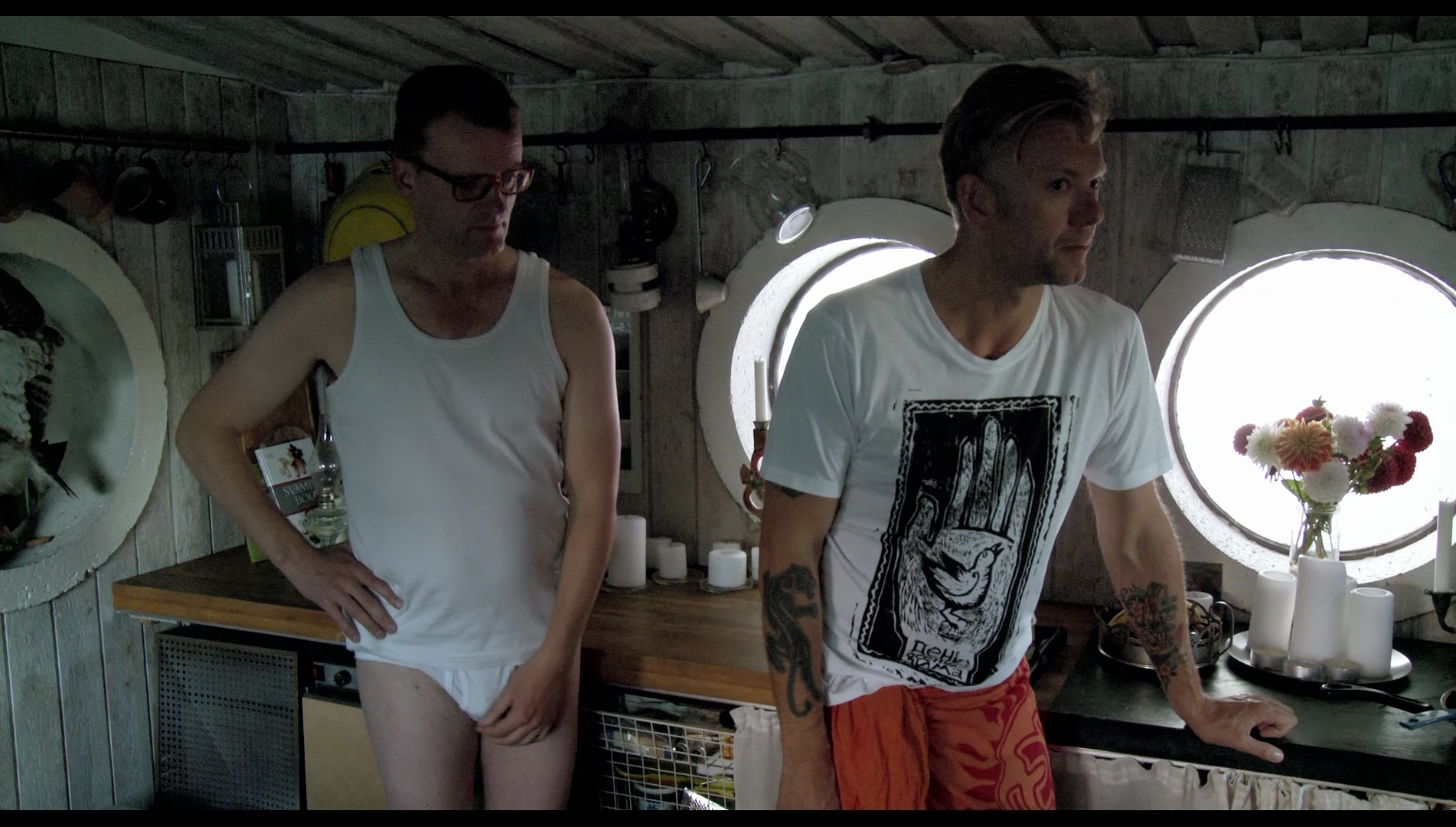 As the film progresses, the situations in which Frank and Casper find themselves become increasingly awkward and, because of this, often deeply funny. There are some jokes that seem to require some knowledge of Danish culture (eg, the jokes about Bent Fabric’s past as a musician), but for the most part the jokes in Klown: The Movie work well for viewers outside Denmark. As noted above, the basic premise of this film (and the television series on which it its based) owes a significant debt to Curb Your Enthusiasm – and fans of Curb… will no doubt find much to enjoy here – but Klown ups the ante in terms of sexual content, to the extent that as the film progresses the viewer may find themselves squirming with anticipation as to what will come next. Fans of the comedy-of-manners sitcom, and especially fans of Curb…, will no doubt enjoy this big screen version of Klown – and may be interested in tracking down the television series. However, be prepared for some very ribald content. As the film progresses, the situations in which Frank and Casper find themselves become increasingly awkward and, because of this, often deeply funny. There are some jokes that seem to require some knowledge of Danish culture (eg, the jokes about Bent Fabric’s past as a musician), but for the most part the jokes in Klown: The Movie work well for viewers outside Denmark. As noted above, the basic premise of this film (and the television series on which it its based) owes a significant debt to Curb Your Enthusiasm – and fans of Curb… will no doubt find much to enjoy here – but Klown ups the ante in terms of sexual content, to the extent that as the film progresses the viewer may find themselves squirming with anticipation as to what will come next. Fans of the comedy-of-manners sitcom, and especially fans of Curb…, will no doubt enjoy this big screen version of Klown – and may be interested in tracking down the television series. However, be prepared for some very ribald content.
Arrow’s Blu-ray presentation of Klown: The Movie is very good and would seem to be true to source – as to be expected of a film captured digitally. A question hangs over whether the film was shot at 1080i/25fps, which given its roots on European television is a distinct possibility (and in which case, the 1080p US Blu-ray is a standards conversion), but regardless this is a very pleasing presentation and a distinct improvement over the DVD that Arrow released in 2014. The pleasing presentation of the main feature is accompanied by some excellent, and thorough, contextual material. The inclusion of an episode of the television series is a very welcome addition, and the other contextual material is strong too. References: Folis, Matt, 2014: Long Form Improvisation and American Comedy. London: Palgrave-Macmillan 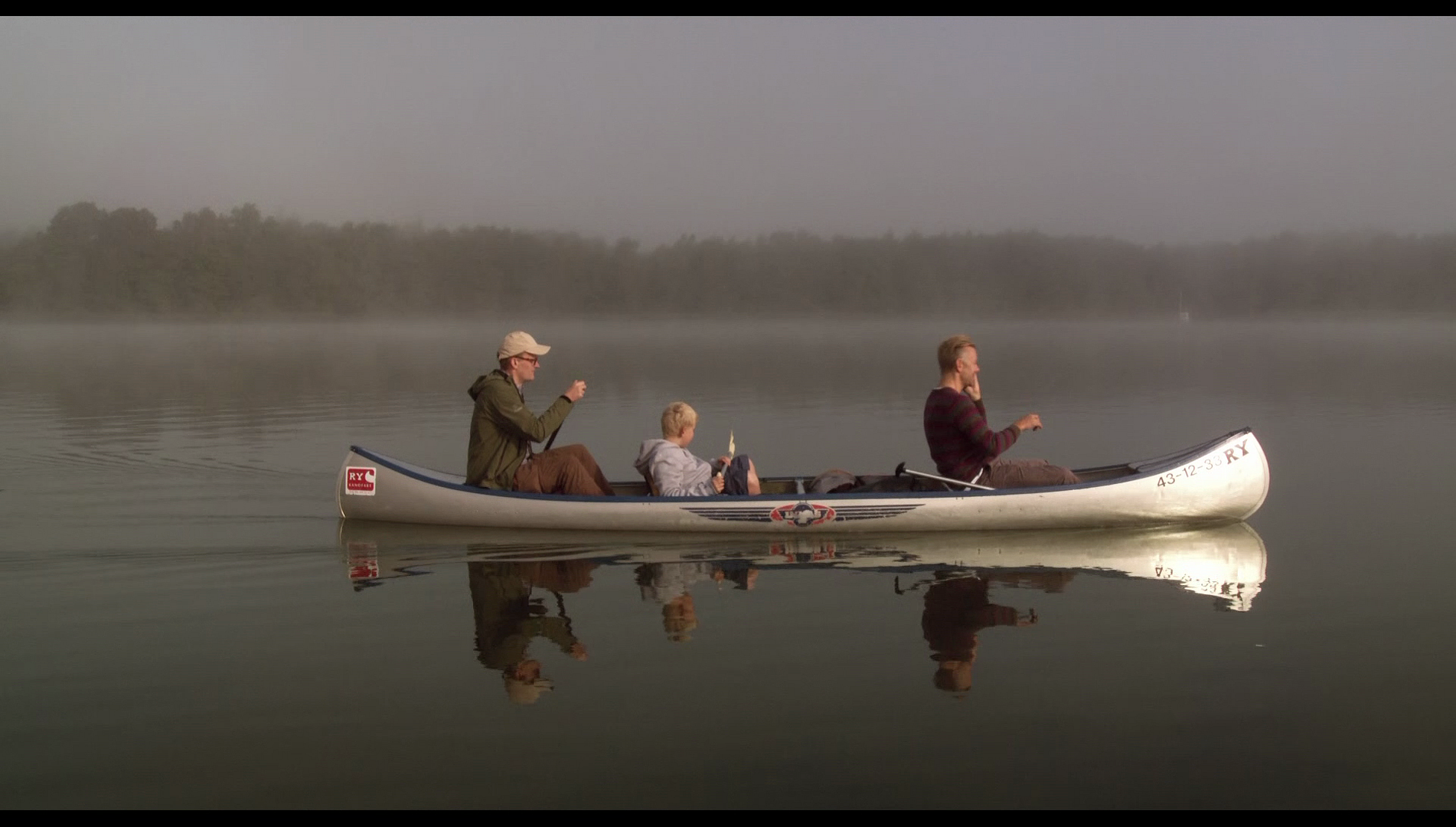
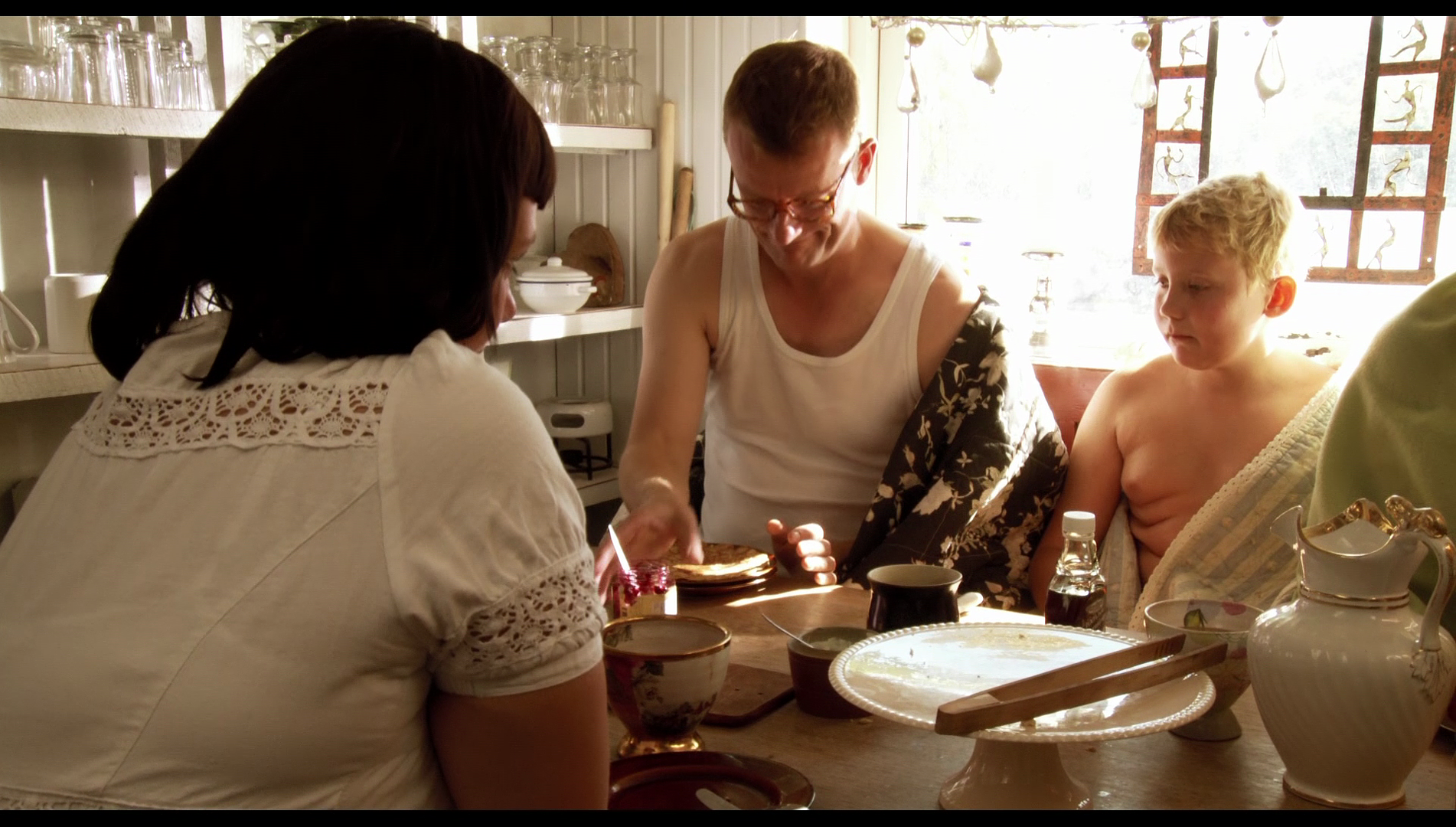
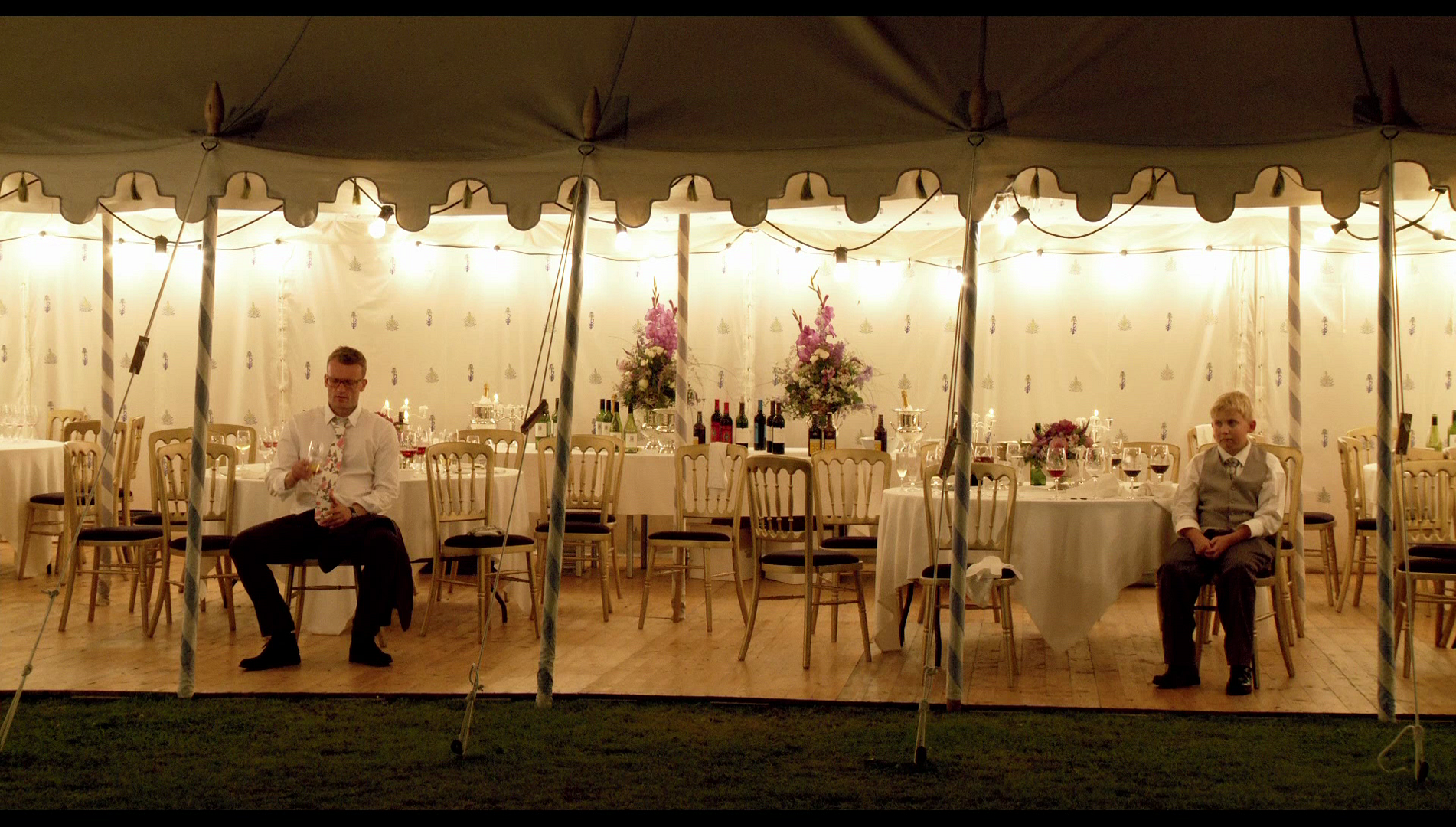
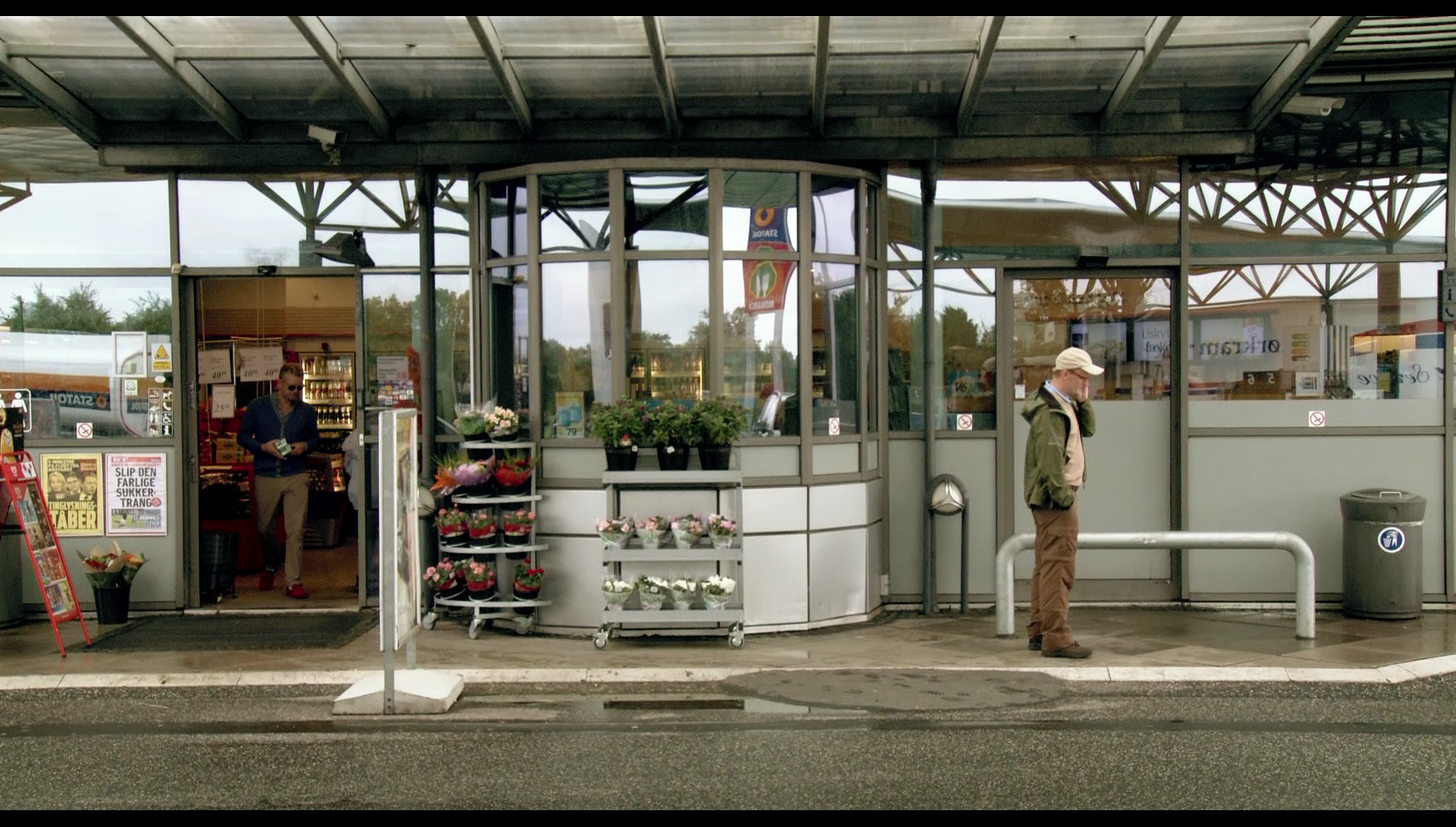
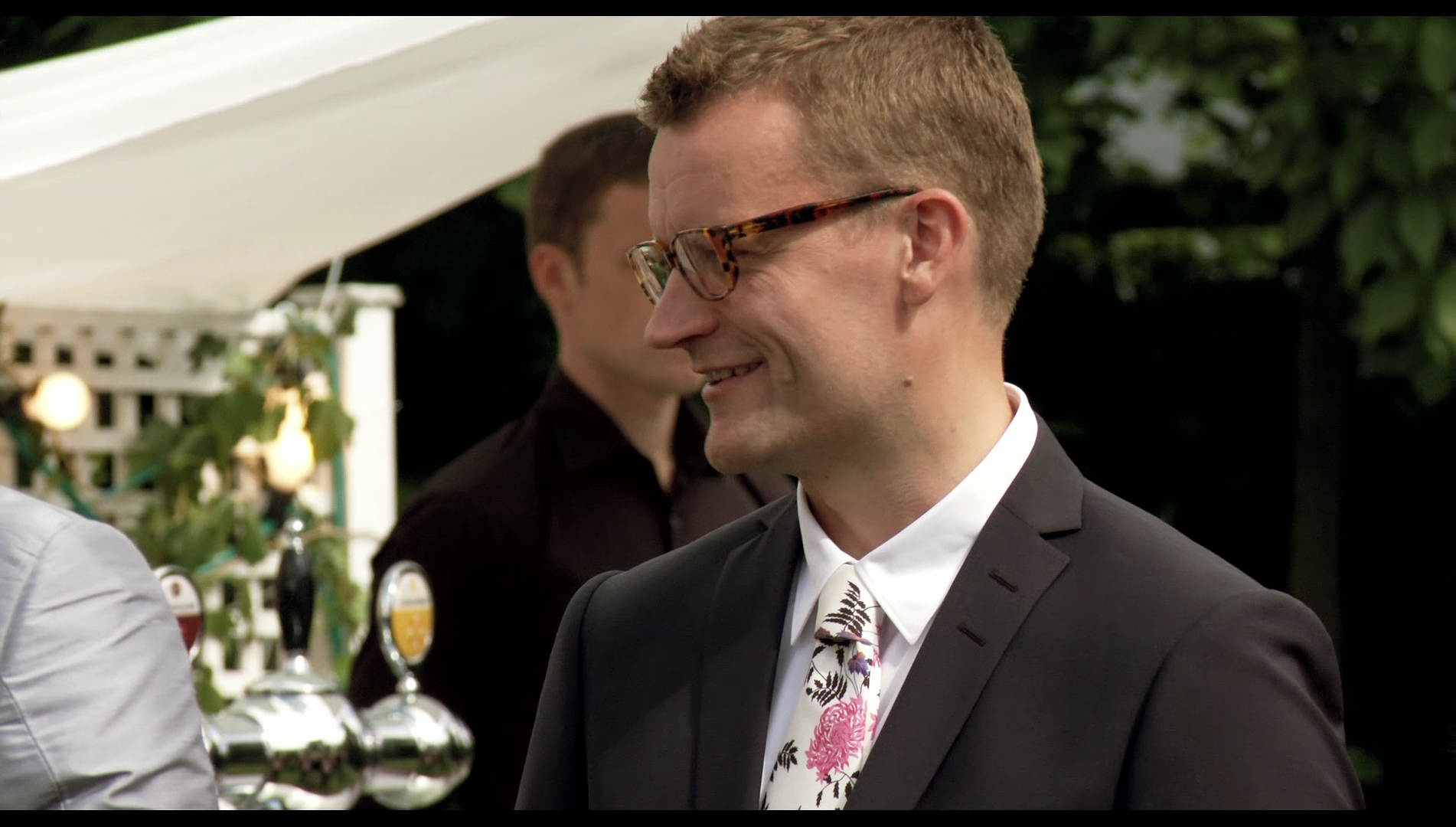
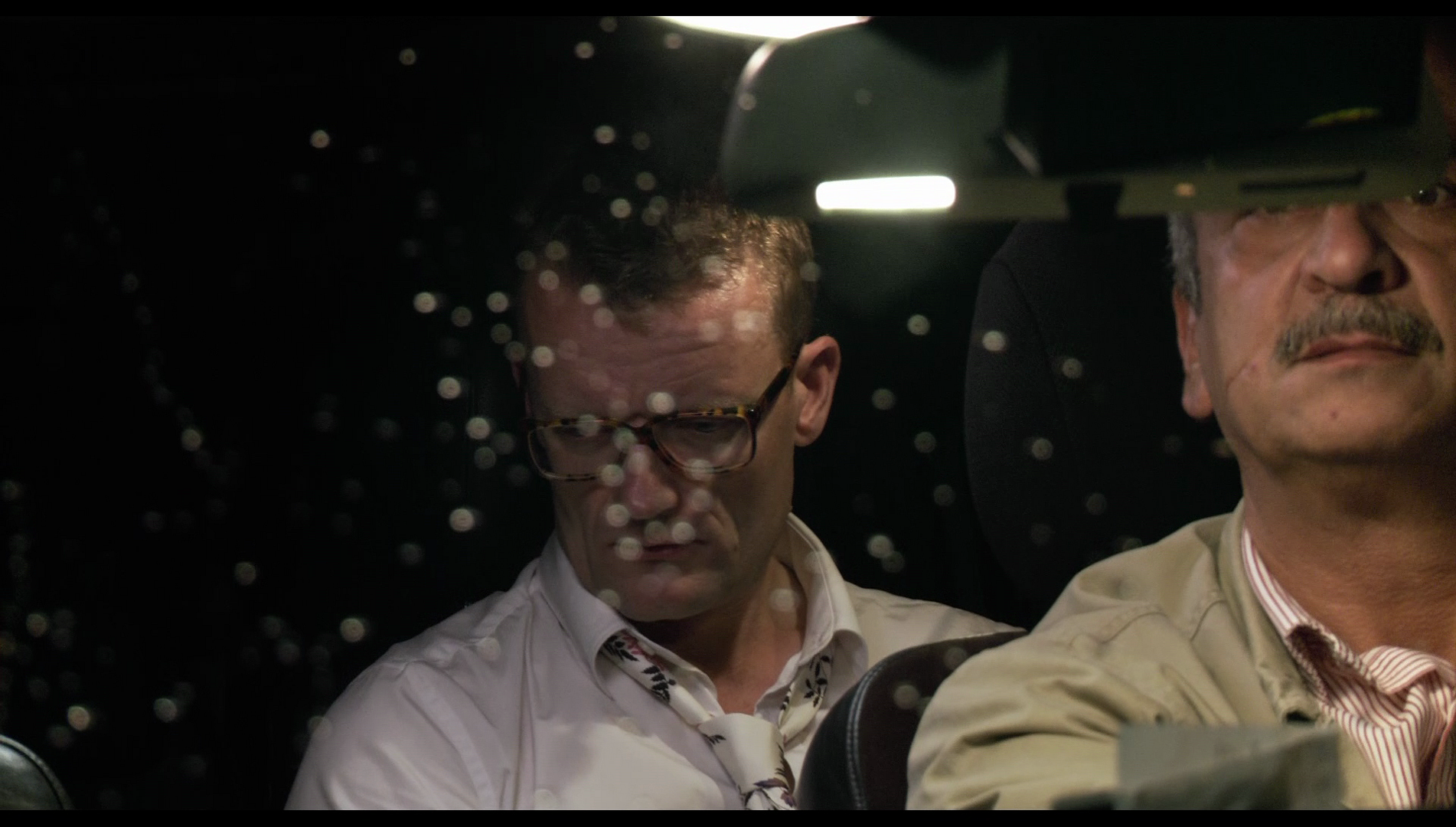
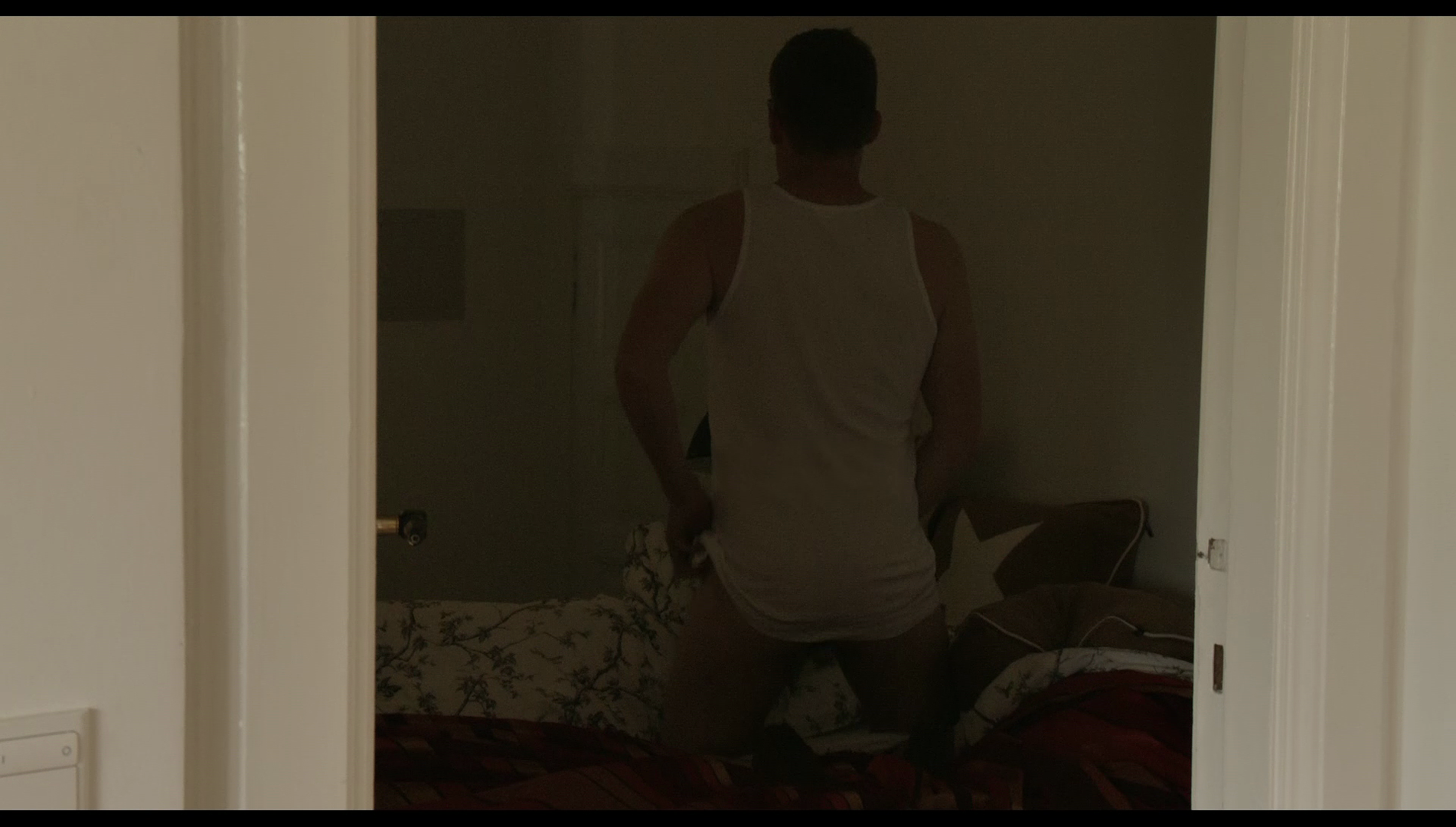
|
|||||

|